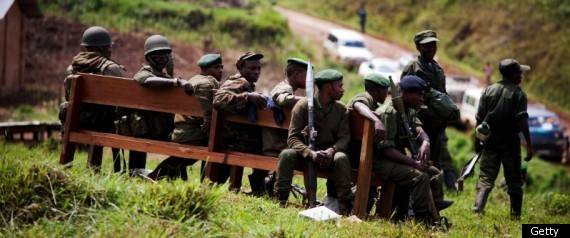Military shake-ups could worsen Congo's mass rape problem

Military shake-ups could worsen Congo's mass rape problem - CSMonitor.com

Over the past few days, information has come trickling in about yet another case of mass rape in the eastern Congo. According to Doctors Without Borders, local health centers, and the UN, anywhere between 121 and 170 women may have been raped on June 11 and 12 in Abala and Nyakiele, two villages in Fizi territory, South Kivu.
Why? In most reports on the incident, the essential context is missing. In this case, the context is the simultaneous integration of armed groups and the formation of new regiments out of existing brigades. This twin process while probably necessary has been rushed and has produced a volatile and often violent situation, of which this mass rape may be a symptom.
So what happened in Fizi? This is what we know so far.
The Congolese army is undergoing a process of troop consolidation, regrouping their brigades which are often desperately understaffed, with only 400-800 soldiers into regiments of 1,200 soldiers. So far, four regiments have been formed in South Kivu, and another five are on their way. Soldiers are being pulled together in training centers, where they are consolidated and placed under new command.
On June 7, the commander of the 10th military region, General Patrick Masunzu, ordered all weapons in the Kananda training center to be stockpiled. This infuriated Colonel Kifaru Niragire, who had been commanding the 43rd sector. Col. Kifaru alleged that Gen. Masunzu was going to name Colonel Ruterera, a Munyamulenge officer from the FRF armed group, as the commander of the newly formed regiment. As Kifaru was the previously the overall commander of several brigades, he felt he was being passed over in favor of an officer from Masunzu's ethnic community.
A stand-off ensued in the training center, and Col. Kifaru deserted along with around 170 soldiers, climbing into the mountains of the High Plateau that rises up to the west of Lake Tanganyika. According to some sources, he was later joined by a small group of around 20 FDLR Rwandan rebels. Col. Kifaru is a Hutu from North Kivu and a former commander of PARECO, which had links to the mainly Hutu FDLR.
On the night of June 10, Col. Kifaru's group passed through Abala, a small village of around 300 people, mostly from the Bembe community. According to diplomatic sources who investigated the incident, Col. Kifaru's men ransacked the village for food and valuables. In the course of this pillage, his soldiers allegedly raped 15 women (some sources are higher).
Military shake-ups could worsen Congo's mass rape problem - CSMonitor.com



